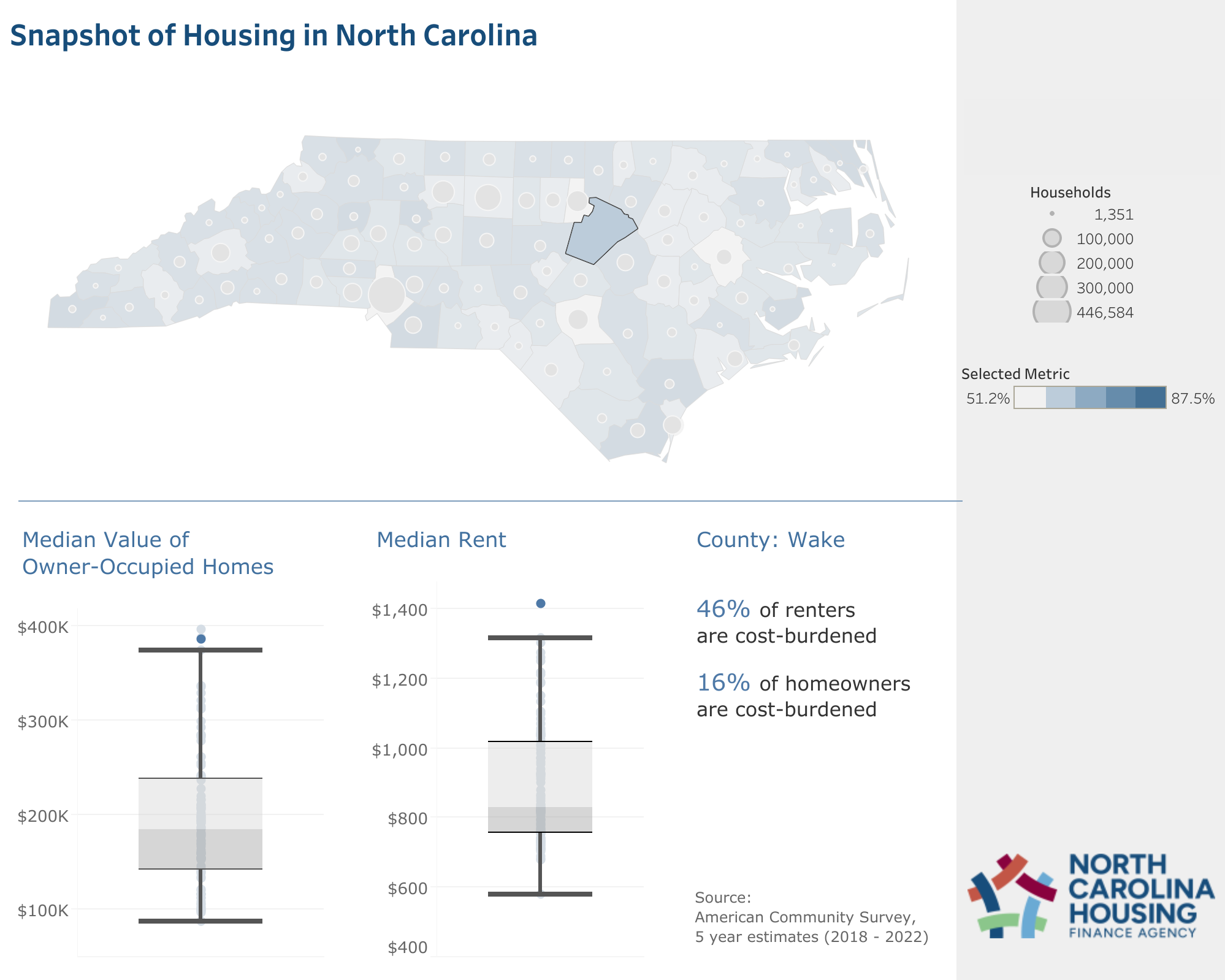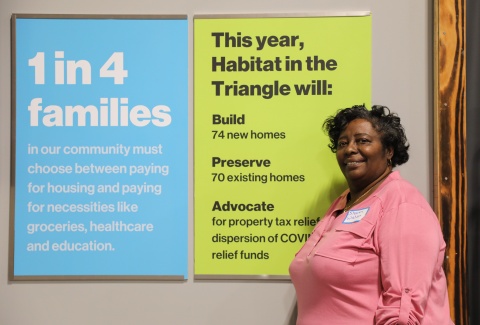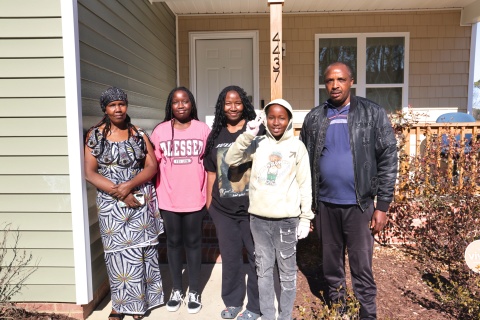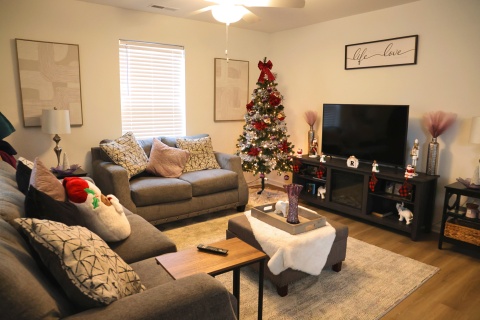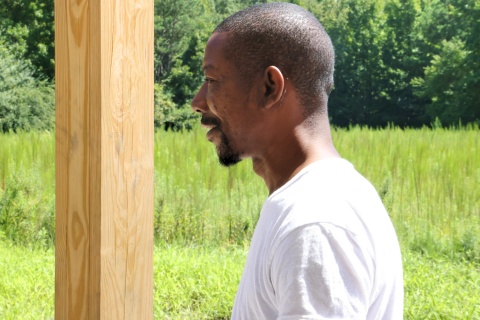What is Affordable Housing?
Affordable housing, as defined by the Department of Housing and Urban Development (HUD), means that a household pays no more than 30% of their income for housing costs like rent, mortgage and utilities. Families paying more than this are considered cost-burdened.
The term refers to housing that is affordable to middle- to low-income families as determined by a region’s Area Median Income (AMI), which varies based on location and household size. Most affordable housing programs are targeted at households earning less than 80% AMI. There is both subsidized and unsubsidized housing, and both are critical to the housing continuum.
Why is there an Affordable Housing Crisis?
Housing costs have outpaced incomes for six decades. Since 1965, home prices have increased 118% nationally, while incomes have only increased 15%.
Disparities in homeownership are deepening. Pre-existing inequities in housing have been exacerbated by the rising market and the lingering effects of the Covid-19 pandemic. Only 44% of Black households own their home compared to 74% of white households. As a result, the median net wealth for white households is ten times higher than it is for Black households.
The nation's housing stock is at an all time low. A lack of housing supply hurts people with low incomes because they have less buying power and can easily get shut out of the market. These inventory shortages are pervasive across the country.
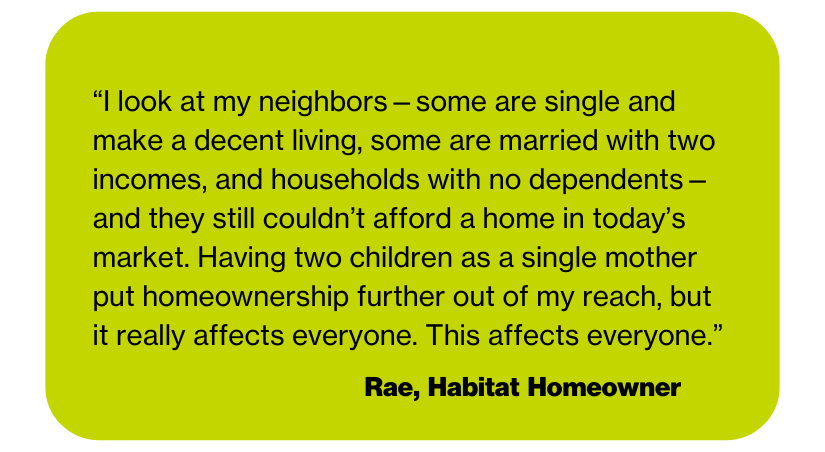
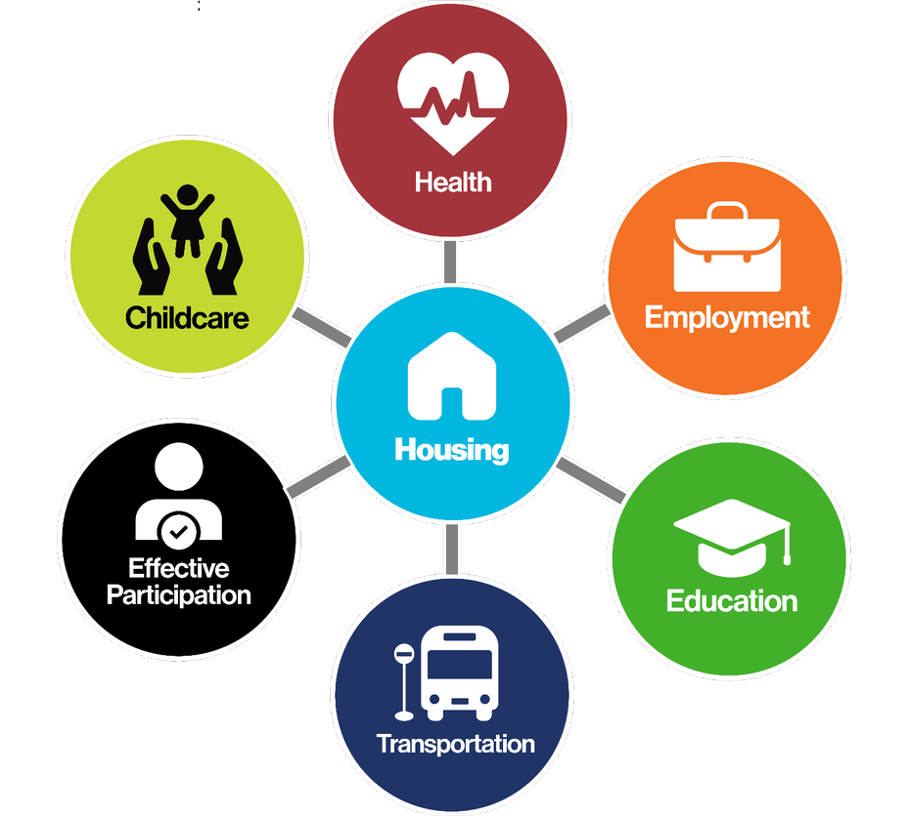 Why is Affordable Housing Important?
Why is Affordable Housing Important?
Affordable housing impacts everyone in our community. Access to housing is a basic human necessity. Studies from the North Carolina Housing Finance Agency support the fact that the impact of stable housing extends to every part of our lives, including the economy, education and healthcare. When people have a safe place to live:
- Children perform better in school and are more likely to go to college
- Residents have more financial security
- Neighborhoods are more cohesive and stable, leading to less crime
- Tax revenue and property values increase
- Improved job performance and less employee turnover
When housing costs are manageable, families can allocate more resources to essentials like transportation and child care, opening doors to better education and job opportunities. Families can afford more preventative care and spend less on expensive emergency care. When families escape oppressive housing costs, they can afford preventive care and experience significant health improvements.
Read more at HFHI: Affordable Housing and Families.
What are Habitat's Solutions?
For more than 40 years, Habitat for Humanity of Wake County has been a force for change—building homes, creating hope and driving advocacy for equitable housing policies. We are committed to finding creative housing solutions that help us serve more people.
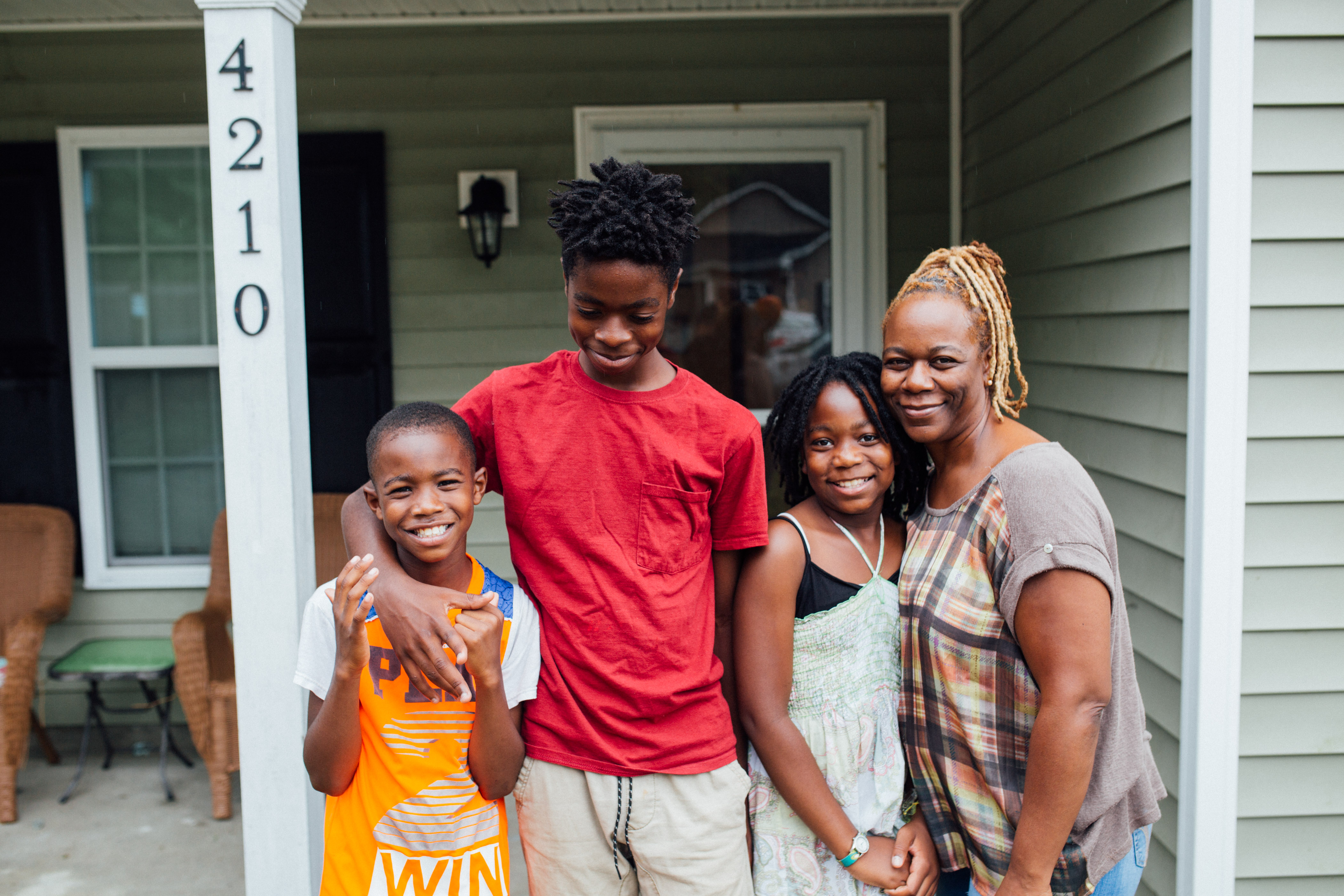 Provide a Path to Homeownership
Provide a Path to Homeownership
Habitat Wake partners with families earning less than 80% of the AMI, offering affordable, low-interest mortgages and a chance to build wealth through a shared equity appreciation model. Habitat homebuyers provide a small down payment, contribute 200+ volunteer hours, and complete financial education courses.
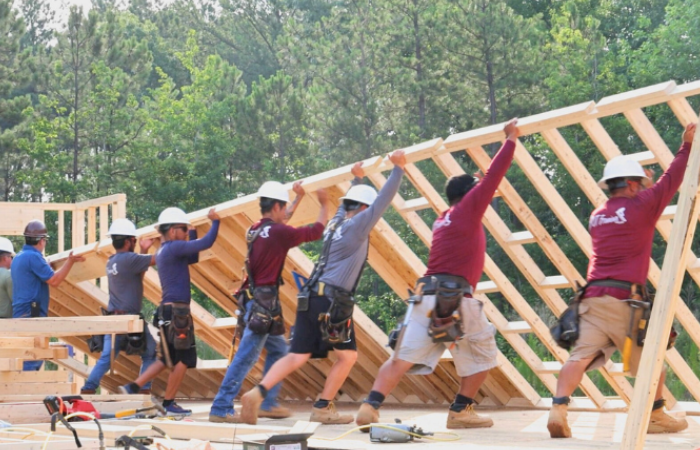 Build and Preserve Affordable Housing Units
Build and Preserve Affordable Housing Units
40-50 new single- and multi-family homes are built each year through the use of volunteer, staff and contractor labor. We also work to repair existing homes and prevent homeowner displacement through our partnership with Rebuilding Together of the Triangle.
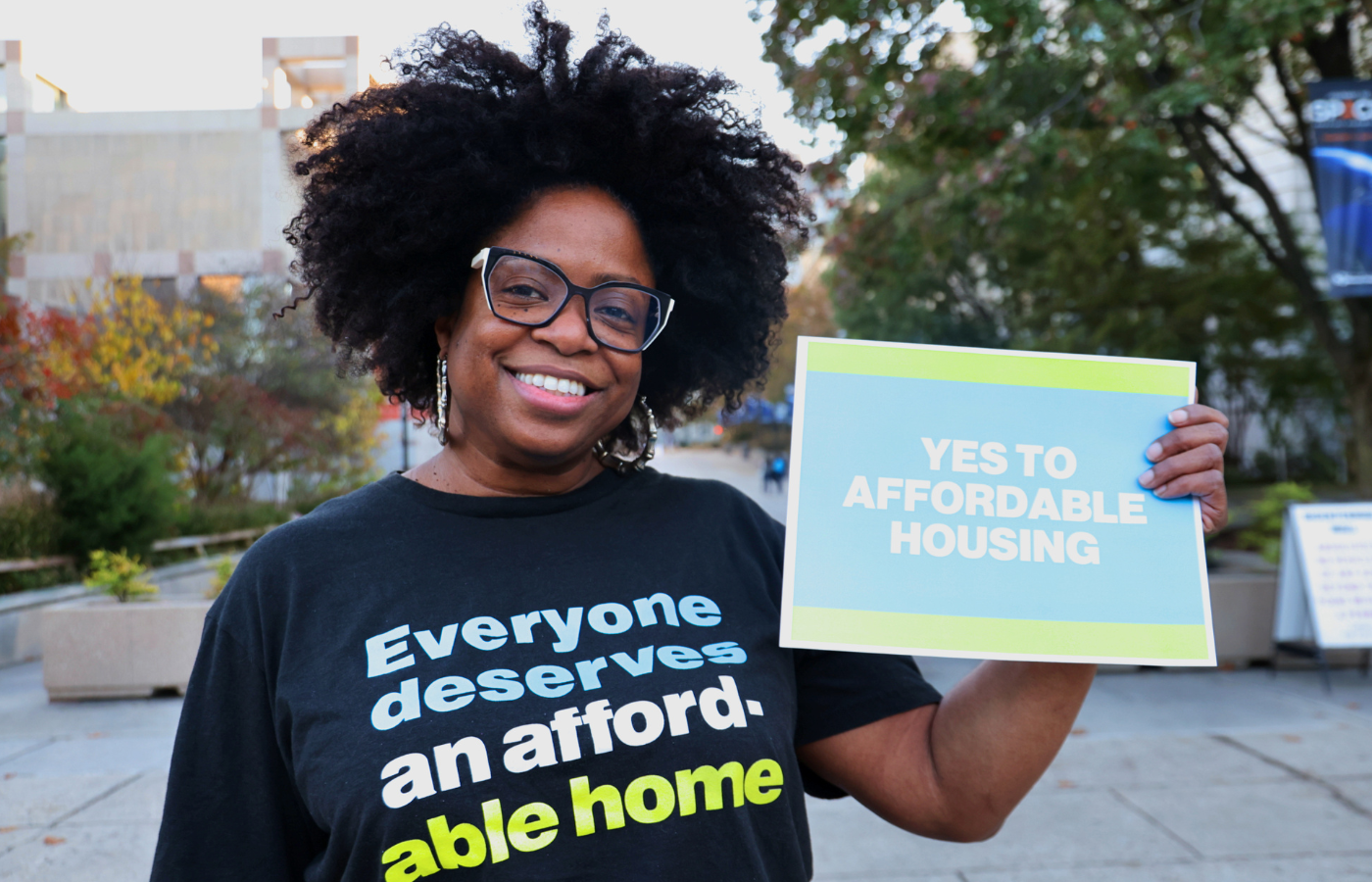 Advocate for Affordable Housing Solutions
Advocate for Affordable Housing Solutions
Advocacy allows us to support affordable housing beyond direct service. We raise our voices to support housing affordability, influencing policy and increasing funding sources to help more families access affordable housing. We educate the community on the need for affordable housing & how to be a part of the solution.
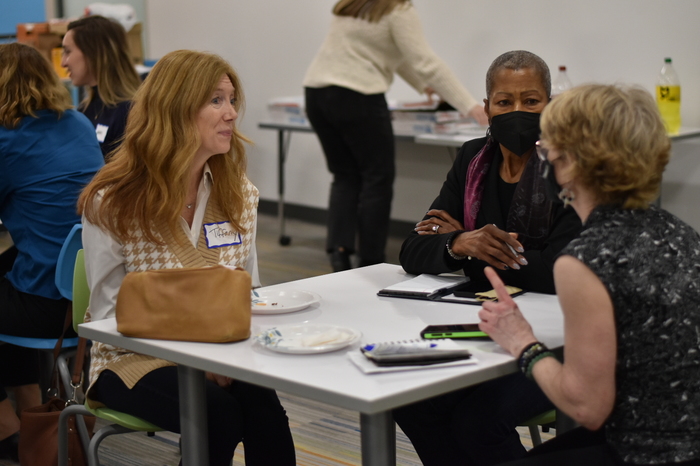 Provide Educational Resources
Provide Educational Resources
We aim to provide comprehensive educational resources to our community about affordable housing, including the various options available and the systemic issues that contribute to the housing crisis, in order to to foster meaningful conversations about potential solutions.
